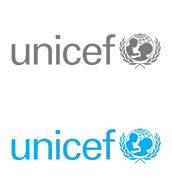ABOUT FOSTERING
What is Foster Care?
Foster care – family placement is an organized form of care for children who cannot live with their biological families, due to various reasons. It includes child placement to another family. By being natural environment suitable for growth and development of each child, the family offers a sense of security and the feeling of belonging. It creates possibilities for the development of child's abilities, for knowledge acquisition, for skill development; it also prepares a child for life and independence. Unfortunately, there are circumstances when a child is being denied with possibility to grow up in biological family. For these children, foster care offers an opportunity to grow up in a family environment which is irreplaceable for proper and harmonious development of child’s personality.
To whom foster care is intended?
It is intended for children who have experienced the tragic loss of their parents, who have been abandoned, neglected or abused by their parents. Also for those whose parents are not able to provide adequate care for them.
How long do children remain in foster care?
In general, foster care should be a temporary solution. In practice it can be organized either as a long term foster care (until a child grow up and reach its independence), or it can be short term intervention until the crisis in biological family is over.
What is expected from foster parents?
• To provide safe environment for a child within the family as well as within a broader surrounding;
• To understand child’s needs, to cherish, bring up and educate a child;
• To understand the influences of loss and interruption of emotional relationship that a child is facing with and to offer support in overcoming the losses;
• To preserve the child's identity (personal, family and religious) by supporting the link between a child and his/her biological family;
• To provide training for the independent living for a child;
• To work in close partnership with professionals as a team and to acquire additional skills;
• To protect a child from abuse and misuse;
Foster parents have the right to:
• receive comprehensive information about issues important for taking care of a child;
• receive adequate professional help and support in taking care of a child;
• be informed about the length of a child’s stay and about plans for its future;
• continue contacts with a child even after the termination of family placement;
• receive realistic financial compensation in order to cover costs of taking care of a child as well as for their work as foster parents (compensation for their work includes contributions for mandatory pension and disability insurance. It is realized on the basis of the signed foster care contract that is valid during the period of child placement in specific family).
Who can be engaged in foster care?
Any family that is opened and ready to take care of a child without parental care and to provide him/her love, attention and warmth of a family home.
It is important that foster family, within the standardized procedure, acquire general eligibility and receive licence issued by Centre for Social Welfare. Each family can take care up to three children i.e. up to two in case a family is taking care of children with physical or intellectual disability.









